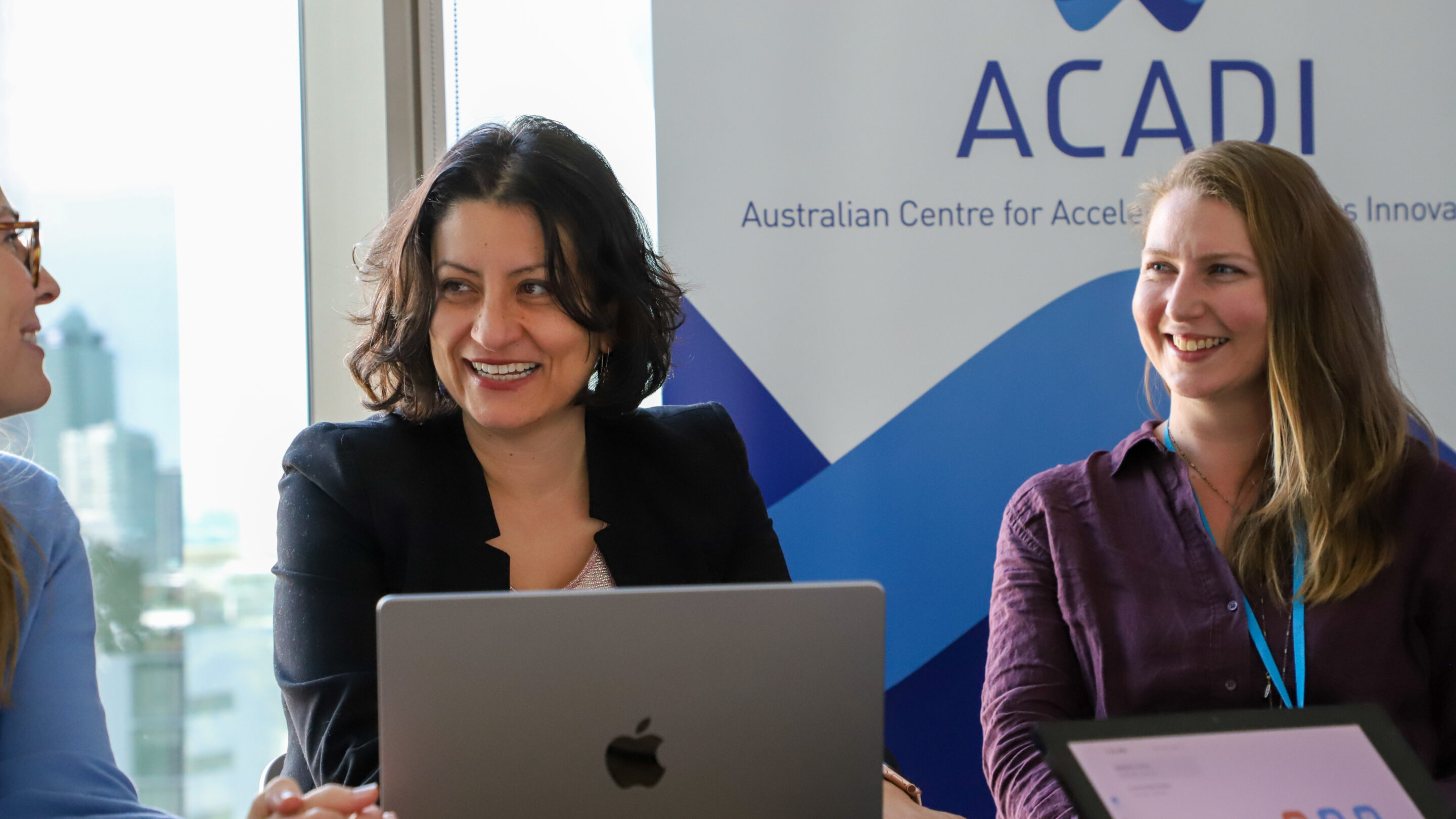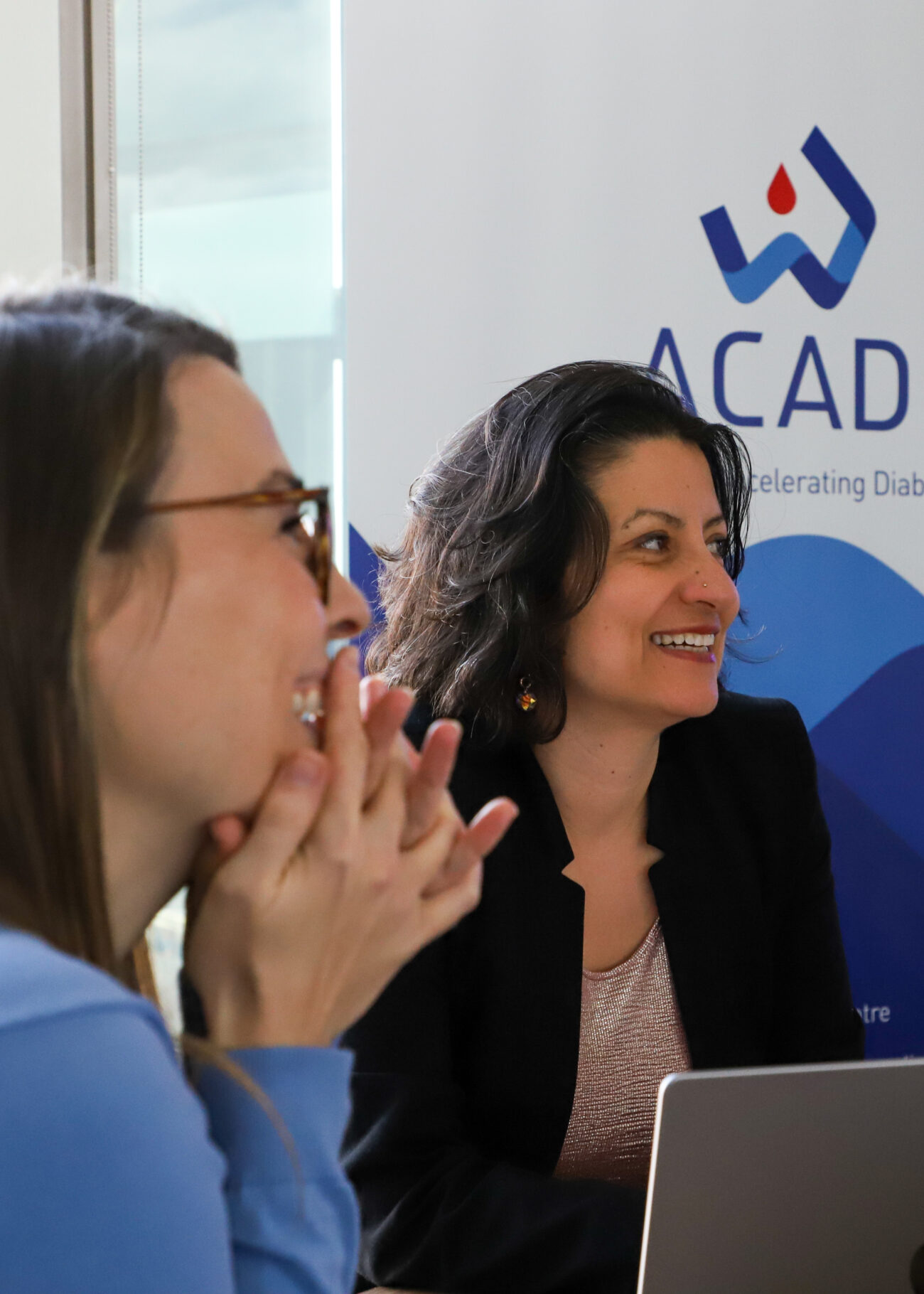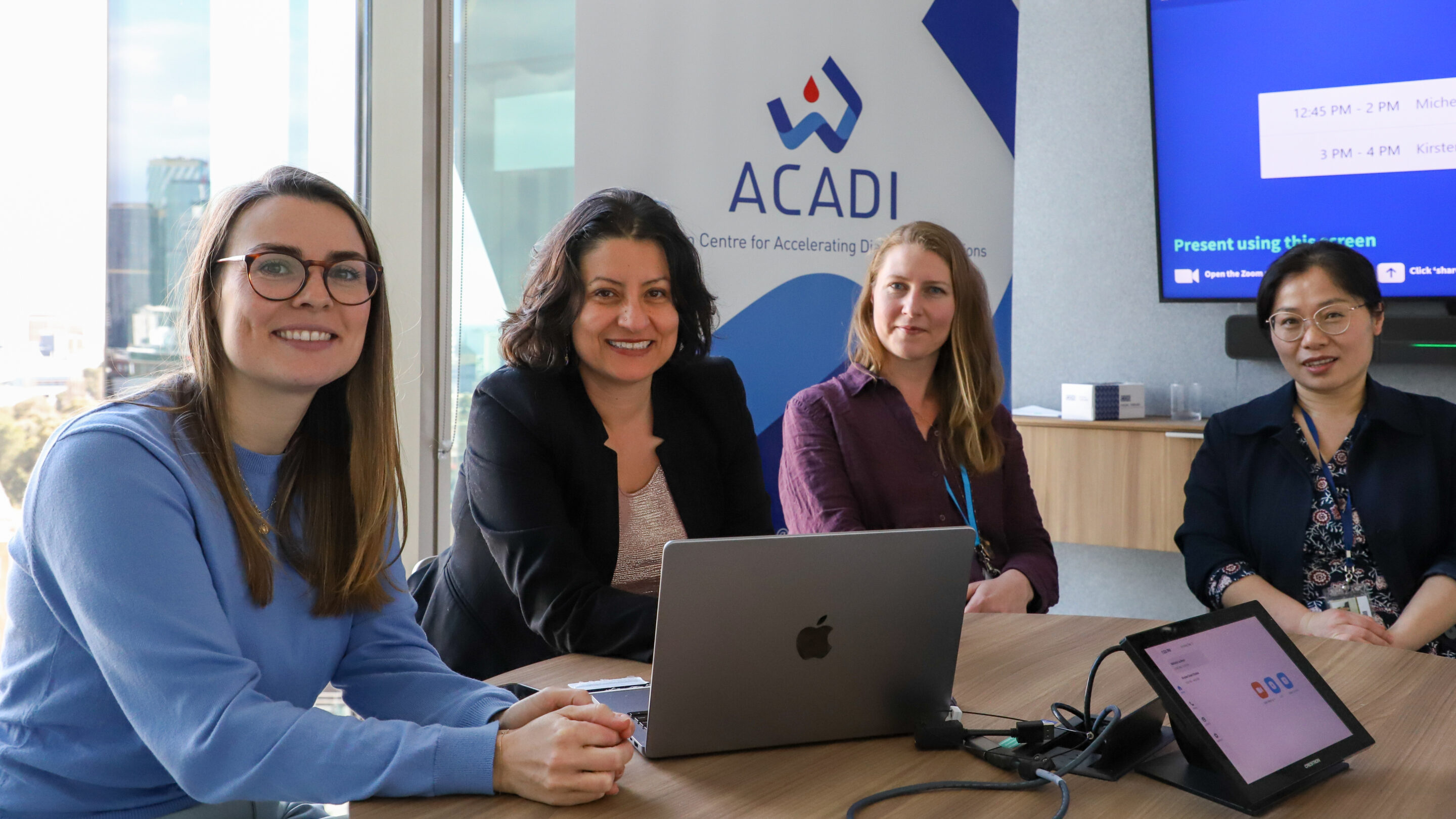

As the Director of the Australian Centre for Accelerating Diabetes Innovations (ACADI), A/Prof Ekinci and her team work tirelessly to translate research that helps people suffering from some of the most severe diabetes-related health complications. In addition to her work at ACADI, A/Prof Ekinci is also Head of Diabetes at Austin Health, the Sir Edward Dunlop Principal Research Fellow in Metabolic Medicine, and Dame Kate Campbell Fellow at The University of Melbourne.
You’d be forgiven for wondering how Elif Ekinci ever finds the time to sleep, however, we were lucky enough to get some time with her for our Minds of Melbourne Connect series and learn more about the incredible work that the team at ACADI undertakes every day.

Hi Elif, to start with, could you introduce yourself to us and tell us where we are today?
My name is Associate Professor Elif Ekinci and I am the director of the Australian Centre for Accelerating Diabetes Innovations. I'm also Head of Diabetes at Austin Health and at the moment we are in the ACADI office based at Melbourne Connect.
Can you please tell us a little bit about ACADI and the work that ACADI does?
ACADI was established through the Medical Research Future Fund, which is from the Australian Government's Targeted Translation Research Accelerator program, administered by MTPConnect. This is a large investment that the Government has put towards improving research in diabetes and cardiovascular disease. The government-funded one national diabetes centre and one cardiovascular disease research centre and I'm fortunate to lead the national diabetes centre.
It's a diabetes centre bringing together relevant researchers and research projects across Australia and internationally to collaborate and focus on solving some of the hardest problems that people with diabetes face. These complications include diabetic kidney disease, diabetic foot ulcers and neuropathy which lead to amputations, as well as those acute complications of diabetes, such as hypoglycaemia or hyperglycaemia. Those complications were prioritised because they are the most painful and difficult problems in diabetes to find a solution for. The centre is funded for four years, and we have 18 projects that will focus on these complications.
Can you tell us a bit about your role within ACADI?
I'm the inaugural director of the centre. I led The University of Melbourne bid last year and I brought together colleagues and collaborators across the country to work on these projects. It's a really great opportunity for us to truly pool our resources, and as part of the team we've got people living with diabetes, we've got engineers, we've got scientists, doctors, we've got nurses and other allied health professionals and scientists working together towards solutions.
Could you tell us more about how you started in this industry and how you got to where you are now with ACADI?
When I was a medical student, I had a scholarship to visit Arnhem Land. It was a scholarship to travel to remote Indigenous communities to spend some time to help understand pressing medical issues that people living in rural and remote communities face, and I went each year for four years during my time at medical school.

There I saw and experienced firsthand the problems that diabetes caused for Aboriginal and Torres Strait Islander people. You know, when people develop these complications such as ulcers and the need for dialysis, they had to leave their community because it's hard to get dialysis in those rural areas. I could see the personal costs to those people who were living with diabetes complications and having to be away from their community, their family and their land, and just how much suffering it caused. I was quite passionate about that and I really wanted to work in the field of diabetes and diabetes complications to try to improve patient outcomes.
I then became an endocrinologist, which is a specialist who studies diabetes among other things. I’m particularly interested in diabetes complications. I completed my PhD in that field and then postdoctoral work and I always had an affiliation with The University of Melbourne, but more working as an academic endocrinologist, and a clinician scientist. I also lead diabetes health service provision at the Austin Health, so I'm Head of Diabetes at Austin Health, which is a major tertiary hospital affiliated with the University.
What's so attractive for you about working at that intersection of research in health sciences and real-world situations?
As a clinician, I really love to talk to patients and their families and find out what their concerns and worries are. That brings the perspective of appreciating the issues and concerns that people living with diabetes face day-to-day.
I'm able to then work with a team of collaborators to try to find solutions for these problems. And that's why I was so passionate about this whole National Diabetes Centre, ACADI opportunity, because it was like bringing together my clinical and research experience and the collaboration. We have a large clinical network that can manage clinical trials, come up with different solutions to problems and at the same time work with people living with diabetes. So it is a unique opportunity and I jumped at that.

What's so attractive about Melbourne Connect as a place for ACADI to be based?
I had heard about Melbourne Connect from the time of its inception. A place where you can develop innovative solutions, working with engineers, data scientists, entrepreneurs, and teams working to solve problems. I really loved the thought of working in a place and a building that can actually help facilitate that and bring people together. So, I really wanted to have some space here for ACADI Headquarters because I could see how much potential it had to take the research and the work that we're doing to that next level, and I really feel like Melbourne Connect will help us get there.
There are PhD students that are affiliated with ACADI that just want to come and use the space and get that sort of sense of entrepreneurial spirit. Other people are really attracted to this place and we've organised several events here already and they've been really successful.
Does ACADI have in place any programs that students at The University of Melbourne can become involved with?
We do get obviously a lot of students that come through, they could be scientists, or they could be clinicians who have an interest in diabetes. ACADI does attract those students who are already on their path to becoming diabetes practitioners, diabetes specialists, and also scientists who want to work in diabetes.
We don't see ourselves as separate from the Melbourne Medical School at all, we're part of the Medical School, and when we do have collaborative meetings, people are often excited to come here rather than meet at other buildings in Parkville. The novelty of the space is a good fit for those projects with special events that are aimed at commercialisation and industry. So ACADI is a virtual national diabetes centre, but we do collaborate with all colleagues in the various University affiliated hospitals including Austin Health, St Vincent's, Royal Melbourne Hospital, Western Health and Northern Health, and the diabetes community.
What would you see as success for ACADI and where do you want to see ACADI grow?
I'd love for active projects to ultimately reach people living with diabetes and their clinicians to help improve outcomes for people. Obviously, I would love to see spinoffs, companies with projects being translated into clinical use and clinical practice. That will be the ultimate goal.
We really want ACADI to have a sustainable future. So securing ongoing ACADI funding from various resources and really establishing something for the long term, setting up this great centre with all these important projects is my goal. I'd love for it to be an ongoing centre and that is ultimately our goal and we have plans to ensure that it's a success in the long term.

As someone who has been in the industry a long time and worked at that intersection of research and industry, how important do you think an innovation precinct like Melbourne Connect is to translate that research into real-world solutions for people?
I think that our problems in healthcare really need those data scientists, people living with diabetes, and industry representatives, engineers and scientists, all these people with different skill sets. That’s why I wanted to secure space in Melbourne Connect, because I could see that in the long term this is part of how we do things in research in chronic disease to come up with these solutions. It doesn't mean that we only work here, we are actually constantly collaborating with all the hospitals and GP practices, with people who are actually seeing patients in other settings. I think it’s just it gives us that extra leverage of having all the various supports with the other people who are in this amazing place and to learn from their experiences. There are companies here that are already further along that translational path, they’ve already commercialised their products and are really succeeding. So, it really helps us to learn from them.
Thanks for your time Elif, it was great to learn more about the work that you and your team at ACADI are undertaking, we look forward to seeing where it all leads.
